Cruise ship tourism has seen an rising development of restrictions and bans throughout numerous world ports, primarily on account of issues over environmental affect, overtourism, and preservation of native heritage. The next checklist particulars 12 notable ports which have imposed measurement restrictions on cruise ships, reflecting a rising motion in direction of sustainable tourism.
1. Venice, Italy
Venice, famend for its breathtaking canals and historic structure, took a daring step in 2021 by banning cruise ships exceeding 25,000 gross tons from getting into the Giudecca Canal and St. Mark’s basin. This resolution was fueled by the pressing must protect fragile canals and shield UNESCO-listed heritage websites from the erosive results of huge vessels. The initiative goals to steadiness tourism and conservation, guaranteeing Venice stays a cultural gem for future generations. The ban was met with each applause and criticism, reflecting the complicated dynamics of tourism-dependent economies. Moreover, the measure highlighted Venice’s dedication to sustainable tourism, prioritizing long-term preservation over rapid financial beneficial properties. Such decisive motion underscores the worldwide shift in direction of defending cultural landmarks from tourism-related degradation. Venice turns into a logo of resilience, adapting to fashionable challenges whereas cherishing its historic roots.
2. Barcelona, Spain
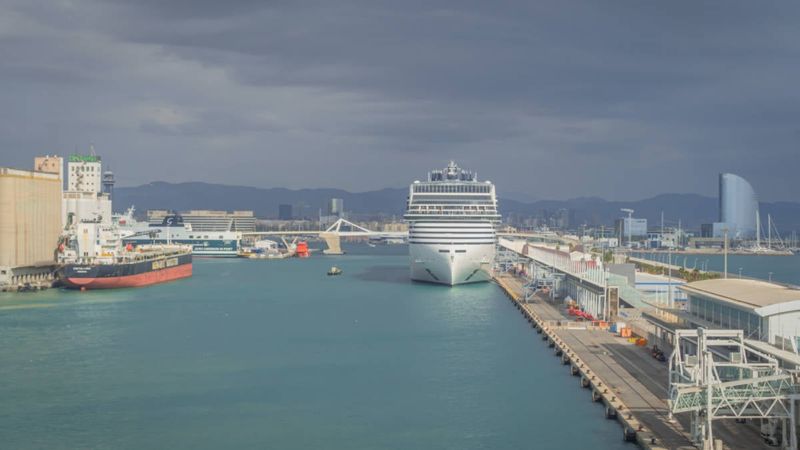
Barcelona, a metropolis well-known for its vibrant tradition and beautiful structure, has considerably decreased cruise ship visitors to mitigate air air pollution and overcrowding. The Catalan authorities introduced plans to restrict massive cruise liners, aiming to deal with environmental issues and improve the standard of life for residents. This transfer helps Barcelona’s broader technique to fight local weather change and promote sustainable city tourism. By curbing the inflow of large vessels, the town seeks to protect its distinctive appeal and livability. Vacationers and locals alike are inspired to discover various transportation modes, fostering a extra intimate reference to the town’s wealthy heritage. As Barcelona navigates the complexities of tourism administration, its proactive strategy serves as a mannequin for different city facilities grappling with related points. The town’s dedication to sustainability elevates its standing as a worldwide chief in accountable tourism practices.
3. Valencia, Spain
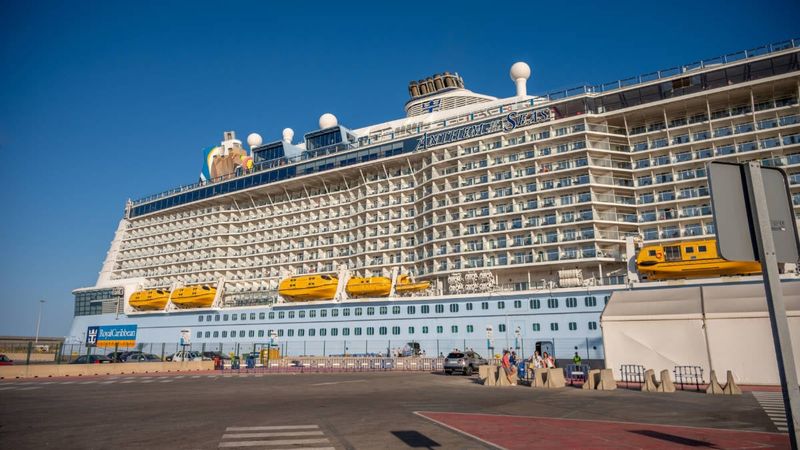
Valencia, a thriving port metropolis on Spain’s jap coast, is poised to ban mega-cruise ships solely by 2026. The choice prioritizes the standard of life for residents and seeks to attenuate the environmental footprint of tourism. This initiative is a part of a broader effort to foster sustainability and shield native ecosystems from the adversarial results of mass tourism. By specializing in smaller vessels, Valencia goals to draw a extra conscious traveler, one who appreciates the town’s historical past, tradition, and culinary choices. This strategic shift additionally aligns with world developments, as cities worldwide grapple with balancing tourism and sustainability. The ban on massive cruise ships symbolizes Valencia’s dedication to preserving its identification whereas embracing a greener future. The transfer garners assist from environmentalists and locals, reinforcing the town’s progressive stance on tourism administration.
4. Palma de Mallorca, Spain
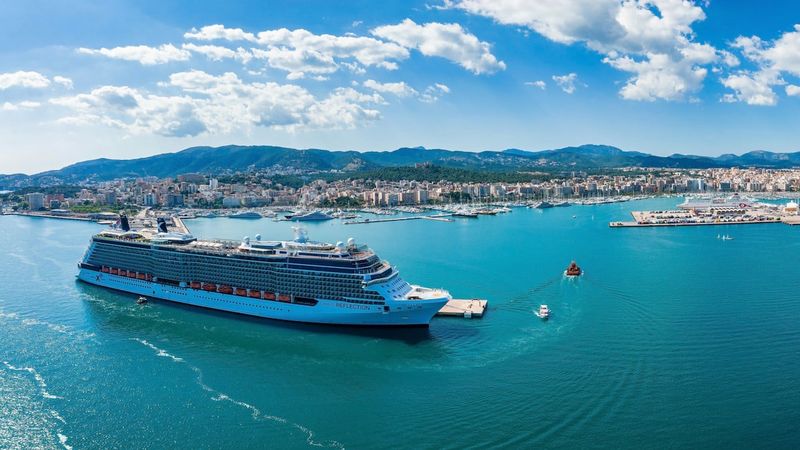
Within the coronary heart of the Balearic Islands, Palma de Mallorca has set limits on cruise ship arrivals since 2022, permitting solely three ships per day and capping massive vessels at 5,000 passengers. These restrictions purpose to fight the adverse impacts of overtourism, reminiscent of environmental degradation and diminished resident high quality of life. As a well-liked Mediterranean vacation spot, Palma de Mallorca’s measures replicate a rising consciousness of tourism’s environmental footprint. By prioritizing sustainable practices, the town seeks to protect its pure magnificence and cultural heritage. This strategy encourages a extra accountable type of tourism, the place guests are invited to discover the island’s charms thoughtfully. The initiative additionally aligns with world efforts to guard fragile ecosystems and promote eco-friendly journey. Palma de Mallorca’s dedication to sustainability units a precedent for different vacationer hotspots going through related challenges.
5. Good (Villefranche-sur-Mer), France
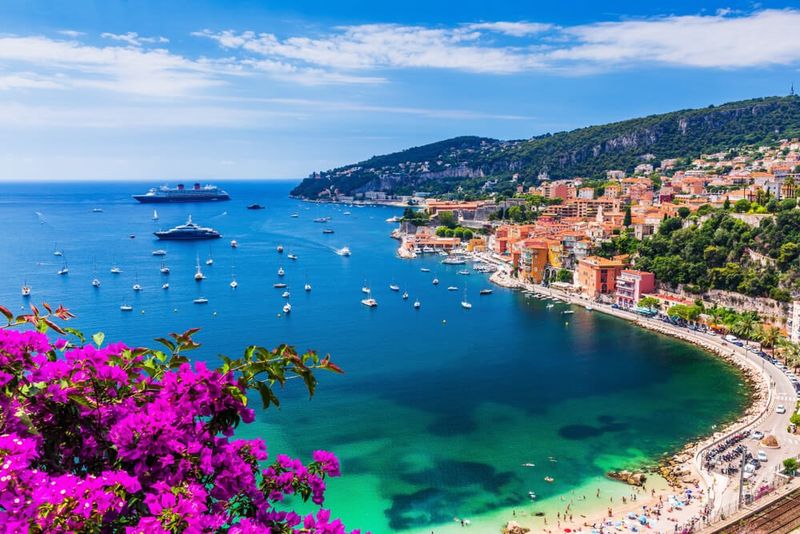
The picturesque harbor of Villefranche-sur-Mer, close to Good, has applied a ban from July 2025 on cruise ships carrying over 900 passengers. Officers describe these vessels as “monsters of the seas,” highlighting the pressure they place on native infrastructure and the setting. This resolution is a part of a broader initiative alongside the French Riviera to guard its pristine shoreline and guarantee sustainable tourism. By imposing these restrictions, Villefranche-sur-Mer seeks to take care of its attract as a captivating, tranquil vacation spot. The transfer has been welcomed by environmentalists and residents alike, who hope to see a discount in air pollution and overcrowding. This proactive stance displays a rising development amongst Mediterranean locations to protect their distinctive ecosystems and cultural heritage. The coverage serves as a testomony to the area’s dedication to sustaining its pure magnificence for future generations.
6. Cannes, France
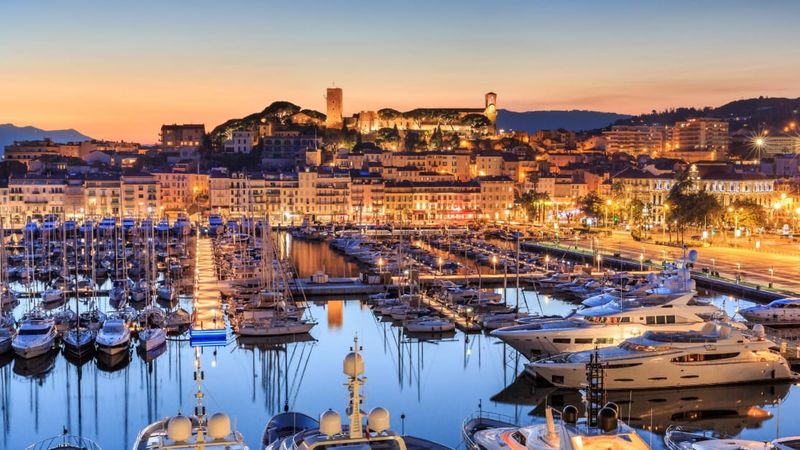
Cannes, synonymous with glamour and the enduring movie pageant, will implement a ban on cruise ships exceeding 1,300 passengers by 2026. This regulation permits massive vessels to anchor offshore, transferring passengers to the port by tender, and limits each day disembarkations to six,000. These measures purpose to alleviate the environmental and infrastructural pressures related to mass tourism. Cannes’ resolution underscores its dedication to preserving the town’s class and the encompassing pure magnificence. By embracing sustainable tourism practices, Cannes units a benchmark for different luxurious locations worldwide. The coverage displays a broader motion alongside the French Riviera, the place cities are more and more prioritizing the preservation of their cultural and ecological heritage. This shift in direction of sustainable tourism is a testomony to Cannes’ proactive strategy, guaranteeing the town stays a coveted vacation spot for discerning vacationers.
7. Amsterdam, Netherlands
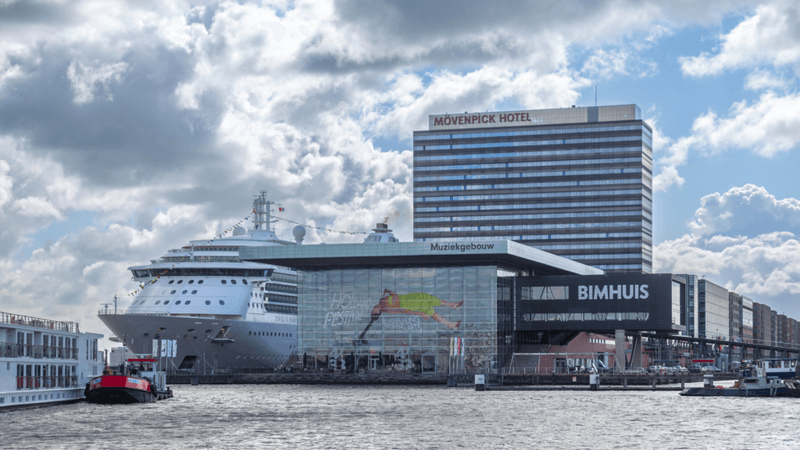
Amsterdam, identified for its canals and vibrant tradition, is closing its central cruise terminal to section out large-scale maritime tourism and tackle overtourism. The choice aligns with the town’s broader efforts to reinforce the standard of life for residents and protect its distinctive city panorama. By decreasing the inflow of large cruise ships, Amsterdam goals to foster a extra sustainable tourism mannequin. The town encourages guests to discover its wealthy historical past and cultural points of interest on foot or by bicycle, selling a extra intimate and eco-friendly expertise. This initiative displays a rising development amongst world cities to steadiness tourism with environmental sustainability. Amsterdam’s strategic strategy serves as a mannequin for different city facilities going through related challenges, demonstrating a dedication to defending its heritage whereas adapting to fashionable calls for. The closure of the cruise terminal marks a big step in direction of reaching these objectives.
8. French Polynesia (Bora Bora & others)
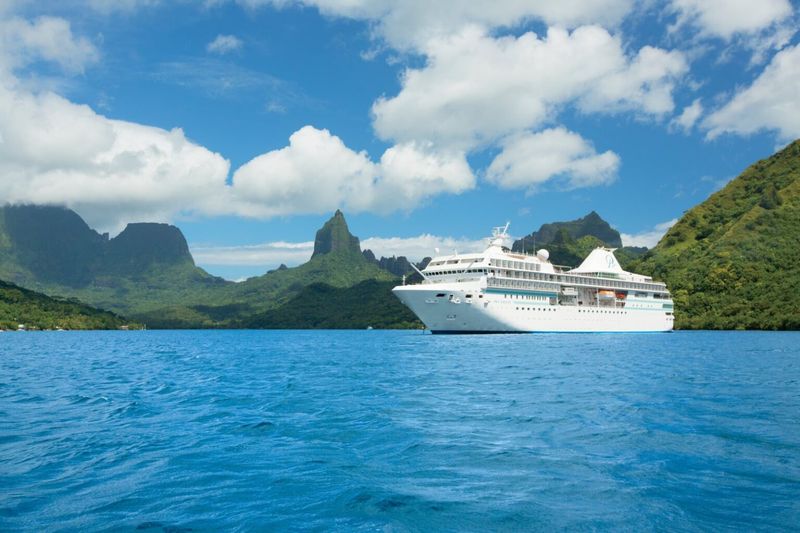
Within the idyllic paradise of French Polynesia, cruise ships carrying over 3,500 passengers have been banned since January 2022. The restrictions prolong additional, with some islands capping each day customer numbers to simply 1,200. These measures purpose to guard the fragile ecosystems and beautiful pure landscapes that outline this tropical haven. The coverage displays a dedication to sustainable tourism, guaranteeing that the pristine setting and vibrant marine life are preserved for future generations. By limiting large-scale tourism, French Polynesia promotes an immersive journey expertise, the place guests can join deeply with the islands’ tradition and pure magnificence. This strategy garners reward from environmental advocates, highlighting the area’s dedication to conservation. French Polynesia’s stance serves as an inspiration for different locations looking for to steadiness tourism with ecological preservation. The ban emphasizes the significance of safeguarding these valuable landscapes.
9. Iceland – Westfjords (Hornstrandir)

The distant and awe-inspiring Hornstrandir Nature Reserve in Iceland’s Westfjords has set a measurement cap on visiting vessels, limiting entries to ships with fewer than 500 passengers by 2024. This initiative goals to guard the delicate tundra and native wildlife from the impacts of mass tourism. The choice displays Iceland’s broader dedication to preserving its distinctive pure heritage, guaranteeing that the beautiful landscapes stay untouched for generations to return. By specializing in smaller, extra sustainable tourism, the Westfjords supply a extra intimate and environmentally pleasant expertise for guests. This coverage aligns with world developments in direction of sustainable journey, highlighting the significance of defending pure ecosystems from overexploitation. The Westfjords’ dedication to conservation units a precedent for different distant locations worldwide. The scale cap emphasizes the necessity to steadiness tourism with ecological stewardship, guaranteeing the preservation of Iceland’s breathtaking magnificence.
10. Bar Harbor, Maine, USA
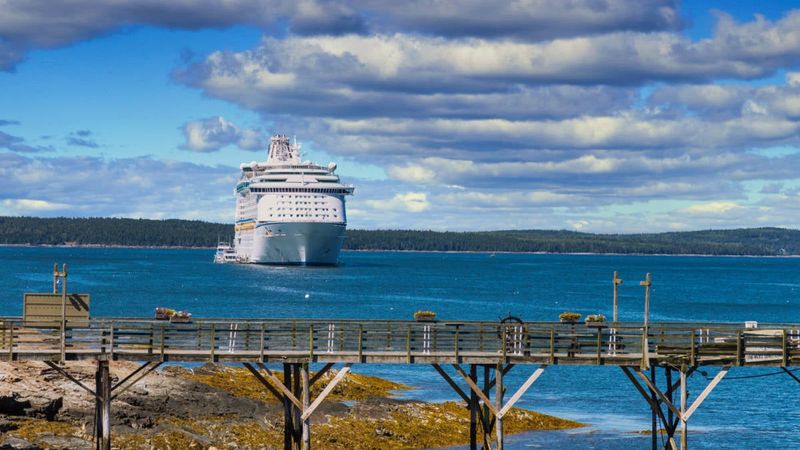
Nestled alongside Maine’s rugged shoreline, Bar Harbor has capped cruise ship disembarkations at 1,000 passengers per day beginning 2024. This regulation goals to forestall the deployment of typical 3,000+ passenger vessels, mitigating the consequences of overtourism. Bar Harbor’s resolution displays a dedication to sustaining the city’s appeal and preserving the pure great thing about Acadia Nationwide Park. By limiting large-scale tourism, the city seeks to reinforce the expertise for guests and residents alike. This initiative aligns with broader developments throughout New England, the place communities try to steadiness tourism with environmental conservation. Bar Harbor’s proactive strategy serves as a mannequin for different coastal cities going through related challenges. The cap on disembarkations underscores the significance of sustainable tourism, guaranteeing that the realm’s distinctive landscapes and cultural heritage are protected for future generations. This coverage represents a forward-thinking strategy to tourism administration.
11. Belfast, Maine, USA
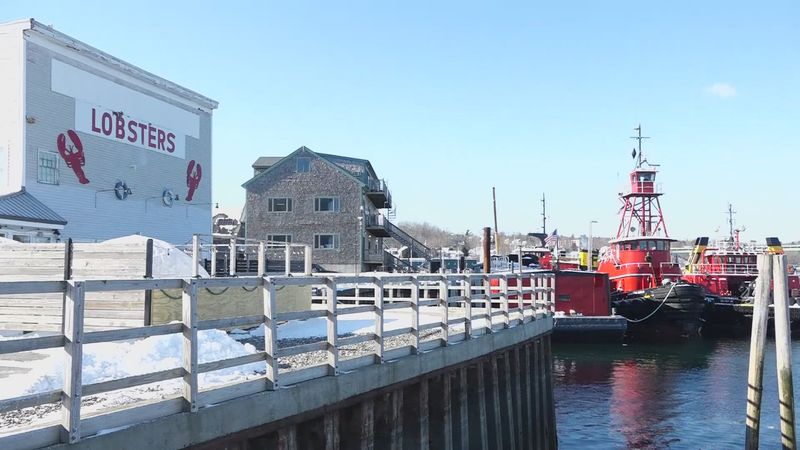
The quaint city of Belfast, Maine, has taken a agency stance towards massive cruise ships, banning them solely on account of security issues and congestion from buses and excursions. This resolution prioritizes the welfare of residents and ensures that the city’s character stays intact. By limiting large-scale maritime tourism, Belfast goals to supply a extra personalised and relaxed customer expertise. The city’s dedication to preserving its appeal and pure magnificence displays a broader motion in direction of sustainable tourism. By specializing in smaller vessels, Belfast can entice guests who respect its wealthy historical past and scenic landscapes. This strategy is a part of a regional development throughout New England, the place communities are more and more prioritizing sustainability over mass tourism. Belfast’s proactive coverage serves for instance for different small cities looking for to steadiness tourism with high quality of life. The ban highlights the significance of sustaining the city’s distinctive identification.
12. Key West, Florida, USA
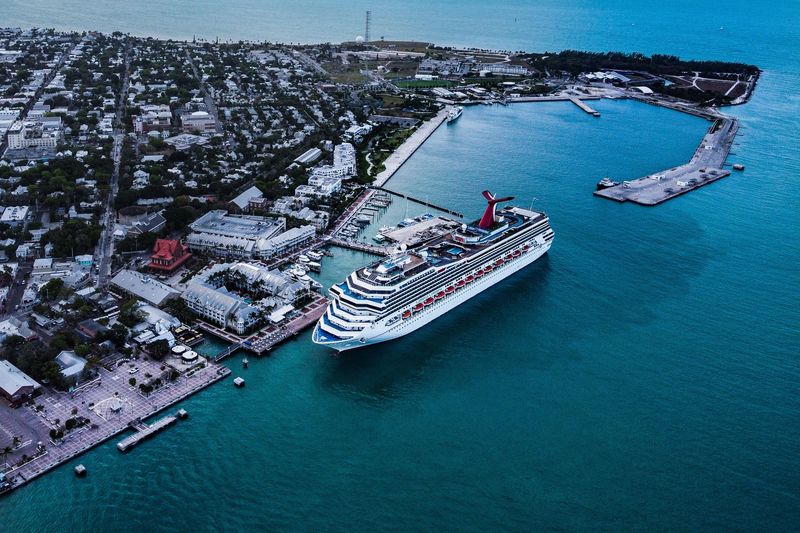
Key West, well-known for its colourful tradition and laid-back vibe, has imposed restrictions on massive cruise ships regardless of a 2020 Constitution modification being overturned. Native piers implement a ban on docking by massive vessels, permitting solely small ship traces to function. This resolution aligns with the neighborhood’s want to protect Key West’s distinctive ambiance and shield its fragile marine ecosystems. By limiting large-scale tourism, the city seeks to reinforce the standard of life for residents and supply a extra intimate expertise for guests. This coverage displays broader developments within the Florida Keys, the place sustainability and environmental conservation are paramount. Key West’s proactive strategy serves as a mannequin for different coastal locations grappling with related challenges. The restrictions underscore the significance of balancing tourism with ecological stewardship, guaranteeing that Key West stays a cherished vacation spot for years to return.
13. Different Mediterranean cities (normal development)
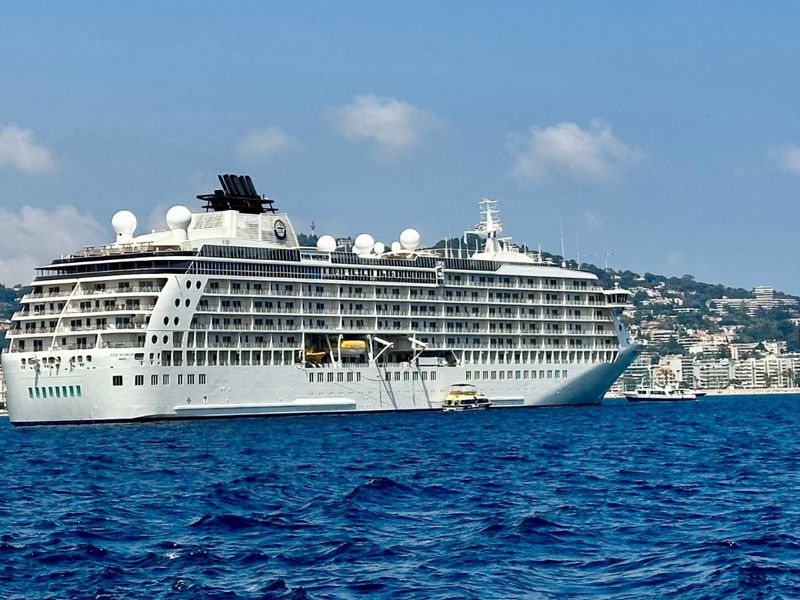
Throughout the Mediterranean, cities are more and more drafting port-size bans to deal with the challenges posed by massive cruise ships. Though not all have set precise dates, the motion in direction of sustainable tourism is gaining momentum. These restrictions purpose to mitigate environmental affect, cut back overcrowding, and protect cultural heritage. By specializing in smaller vessels, Mediterranean cities can entice extra conscientious vacationers and supply a extra genuine expertise. The development displays a worldwide shift in direction of balancing tourism with conservation efforts, guaranteeing that these locations stay vibrant and livable for residents. This proactive strategy highlights the significance of defending fragile ecosystems and sustaining the standard of life for native communities. The final development amongst Mediterranean cities serves as an inspiration for different areas looking for to deal with the challenges of mass tourism. The emphasis on sustainability underscores the necessity for accountable tourism practices.
14. Cruise backlash motion general
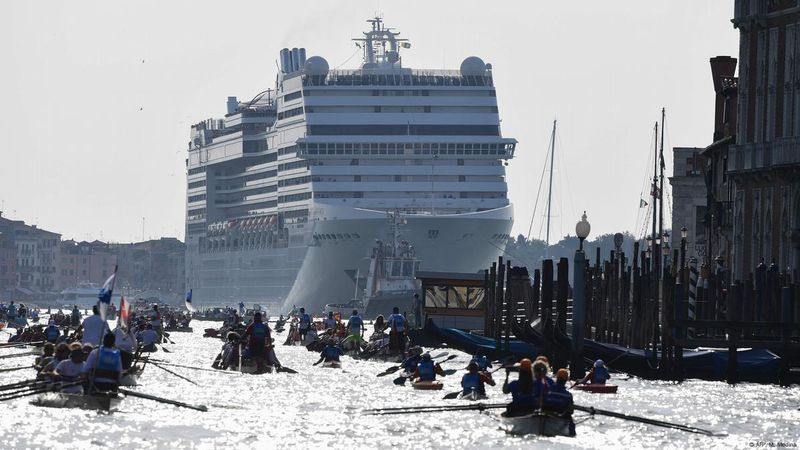
The worldwide backlash towards massive cruise ships, sometimes called “cruisezillas,” displays mounting issues over overtourism, environmental affect, and infrastructure pressure. Marketing campaign teams and governments worldwide are advocating for limits, bans, and taxes to deal with these challenges. This motion underscores the pressing must steadiness tourism with ecological preservation, guaranteeing that locations stay viable for future generations. By implementing such measures, cities purpose to guard their pure and cultural heritage from the adversarial results of mass tourism. The cruise backlash motion displays a rising consciousness of the environmental footprint of mega-ships and a dedication to fostering sustainable journey practices. This world development highlights the significance of accountable tourism, as locations search to protect their distinctive character whereas accommodating guests. The motion serves as a name to motion, encouraging cities worldwide to prioritize sustainability and conservation of their tourism methods.

